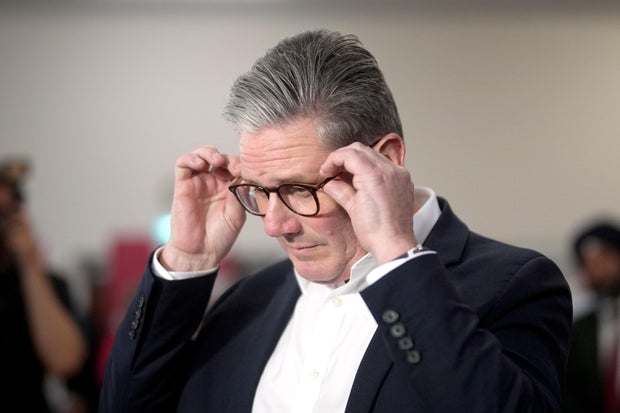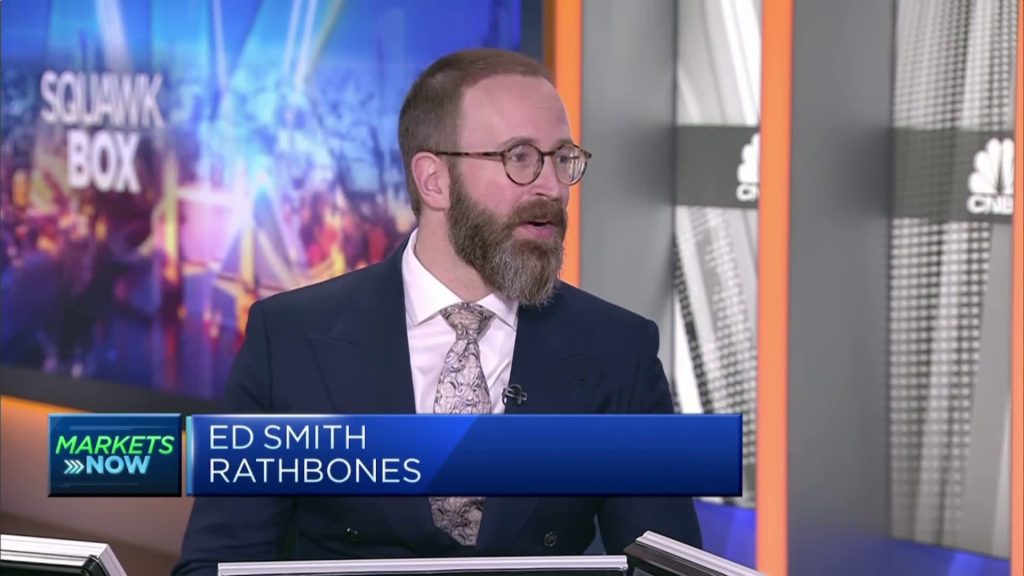London — When Keir Starmer was elected to lead Britain’s Labour Party in 2020, right after the party suffered its worst general election defeat in 85 years, he made it his mission to make the party “electable.”
Four years later, after 14 years of governments led by the rival Conservative Party, Starmer is poised to take Britain’s top job.
With almost all the results in, Labour had won 410 seats in Parliament’s 650-seat House of Commons and the Conservatives 118.
Outgoing Prime Minister Rishi Sunak conceded, saying the voters had delivered a “sobering verdict.”
The 61-year-old Starmer has faced years of criticism for a perceived lack of charisma, but his methodical mission to drag Labour back toward the center of British politics and broaden its appeal to voters worked. Starmer and Labour have also, indisputably, capitalized on years of economic pain and political chaos under the Conservative Party, whose parliamentary majority was eviscerated.
Professor Sir John Curtice, a political analyst and elections expert who, through decades of TV commentary has become something of a British national institution himself, told the BBC just a couple days before the election that there was “more chance of lightning striking twice in the same place” than Sunak remaining in power.
So Starmer will take the reins of government, but with the British people’s overall trust in politicians at rock bottom and a record number of British children living in poverty.
Where does Keir Starmer come from?
Sir Keir Starmer — the former lawyer was knighted for services to criminal justice — has, through years of chaos (you may remember Partygate, or perhaps even Prime Minister Liz Truss’ 50 days in power) projected an almost dull managerialism that appears to have become a beacon for a welcome return to political normalcy.
Starmer grew up in a small town in Surrey, just outside London. His mother worked for the National Health Service, Britain’s free public health care system, and his father was a toolmaker — a fact that Starmer repeated so often during the election campaign that it became a meme.
His mother suffered for all her life from Still’s disease, a type of inflammatory arthritis, and died only a few weeks after he was first elected to the British Parliament in 2015. His father died three years later. Starmer has said his relationship with his father was strained, and that never telling him, “I love you and I respect you” is “the one thing I do regret.”
Starmer was the first member of his family to go to university, after which he helped run a left-wing magazine called Socialist Alternatives. He then became a lawyer, rising up the ranks to become the head of public prosecutions in 2008, running the British government’s Crown Prosecution Service. He received his knighthood in 2014, the year before he turned to politics.
Despite his legitimate background in tackling serious crime, Starmer has never managed to shake the image of a relatively boring politician. He’s even leaned into it on occasion.
“If, in the end, that is the only bit of mud left to sling, then I’m pretty comfortable,” he told Britain’s ITV in January. “If they are calling you boring, you’re winning.”
What are Keir Starmer’s policies?
Throughout his tenure as Labour leader, Starmer has tried to make his party more electable by forcing out individuals seen as entrenched in its socialist left wing — the faction that ran the party under its previous leader, Jeremy Corbyn (whose cabinet Starmer served in, incidentally).
After Corbyn called the findings of an inquiry into antisemitism in the party “dramatically overstated,” Starmer suspended him.
“Sometimes you have to be ruthless to be a good leader,” Starmer told Esquire about the episode.
His public mantra has been “country before party.”
Starmer’s move toward centrism has been criticized by left-leaning members of his own party and others. He irked many by backtracking on several key pledges, including that Labour would increase income tax, scrap university tuition fees and nationalize the majority of Britain’s public services.
He has also come under fire for Labour’s screeching u-turn on a green investment pledge worth more than $35 billion annually, and for equivocating on alleged Israeli war crimes in Gaza, despite his legal background.
In a recent speech, Starmer said he had a long-term “big, bold plan” for Britain. But he cautioned that “we need first steps.”
Those, according to the BBC, include clamping down on tax avoidance, shortening NHS patient waiting lists and recruiting more teachers and neighborhood police officers. He also wants to negotiate a better deal with the European Union, given the catastrophic economic consequences of the U.K.’s “Brexit.”
He said his unflashy election pledges were a “down payment” on what the Labour Party can offer Britain if it is given enough time.
“I’m not going to make a promise before the election that I’m not comfortable we can actually deliver,” he’s stressed.
“A lot of people on the left will accuse him of letting them down, betraying socialist principles. And a lot of people on the right accuse him of flip-flopping,” Tim Bale, a political scientist at Queen Mary University of London, told The Associated Press. “But, hey, if that’s what it takes to win, then I think that tells you something about Starmer’s character. He will do whatever it takes — and has done whatever it takes — to get into government.”
How might Starmer influence U.S.-U.K. relations?
With British and American election cycles coinciding for the first time since 1992, there’s a lot of uncertainty about how U.S.-U.K. relations could look by the end of the year.
Starmer has spoken admiringly of President Biden, particularly his focus on job creation and investment in domestic industry. The Economist even described him as “infatuated” with the American president.
Senior Labour figures have reportedly met secretly with Democratic counterparts already.
So, it’s expected that Mr. Biden would have a close ally in Starmer — if Mr. Biden is still the president in 2025.
If former President Donald Trump were to win in November, U.S.-U.K. relations would likely be less chummy.
Despite her being a Conservative and thus ostensibly on the same side of the political aisle, Trump had a difficult relationship with former Prime Minister Theresa May during his first term in office. He got on better with the more populist — and many say, more Trumpian — Boris Johnson.
“A Biden White House would find Starmer a well-wisher and useful spear-carrier,” Eliot Wilson, a former senior official in the U.K. House of Commons wrote in The Hill. “For Trump, he would prove a vague annoyance, and could not be counted on to echo the wilder MAGA phrasebook.”
The reality for U.K. leaders, from any party, almost a decade after Britain’s exit from the EU, is that the long-touted “special relationship” with Washington has never been more vital.
“We will work with whoever is elected,” Starmer has said. “We have a special relationship with the U.S. that transcends whoever the president is.”
What comes next?
Final results from Thursday’s voting will be published Friday morning, and Sir Keir will be the next British Prime Minister.
Sunak will resign and King Charles III will quickly take the necessary but largely ceremonial step of inviting Starmer to form a new government.
Starmer will then appear to make his first speech outside 10 Downing Street, the official residence of Britain’s top elected official.
Once the formalities are completed, Starmer will receive briefings from key members of the civil service and the intelligence community, select the members of his new cabinet and start taking phone calls from world leaders.
And then? Well, then there’s the often unglamorous business of running the country.



